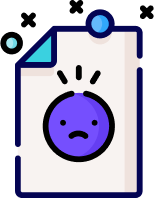

Comprehensive Curriculum
Industry-Relevant Skills
Job Placement Assistance
Practical Learning
Expert Guidance
Embark on a journey to become a proficient software tester with our comprehensive training program. Whether you're a beginner or experienced professional, our course caters to individuals at all skill levels. Through a blend of theoretical knowledge and practical application, you'll gain the expertise needed to excel in the field of software testing.
Our curriculum covers a wide range of topics, including manual testing, automated testing, test management, and more. You'll learn industry-standard tools and methodologies, ensuring you're equipped with the latest skills demanded by employers. With hands-on projects and real-world scenarios, you'll have the opportunity to apply your knowledge in practical settings, building a strong foundation for your testing career.
Under the guidance of experienced mentors, you'll receive expert insights and personalized support throughout your learning journey. Additionally, our job placement assistance program provides valuable resources such as resume building workshops, interview preparation sessions, and access to job opportunities, helping you kickstart your career in software testing.
Comprehensive Understanding: Gain a comprehensive understanding of software testing principles, methodologies, and best practices. Learn the fundamentals of software testing, including test planning, test design, test execution, and defect management.
Practical Skills Development: Develop practical skills in manual and automated software testing techniques. Gain hands-on experience in creating test cases, executing test scripts, and reporting defects using industry-standard testing tools and frameworks.
Quality Assurance Expertise: Acquire expertise in ensuring software quality and reliability through effective testing strategies. Learn how to identify, analyze, and mitigate software defects to deliver high-quality software products that meet user requirements and expectations.
Test Automation Proficiency: Master test automation techniques using popular automation testing tools such as Selenium, Appium, JUnit, TestNG, and others. Learn how to automate test cases to increase testing efficiency, reduce manual effort, and accelerate the software delivery process.
Agile and DevOps Integration: Understand the role of software testing in Agile and DevOps environments. Learn how to implement testing within Agile development sprints and integrate testing into continuous integration/continuous deployment (CI/CD) pipelines for faster and more reliable software delivery.
Industry-Relevant Certification: Prepare for industry-recognized software testing certifications such as ISTQB (International Software Testing Qualifications Board) or ASTQB (American Software Testing Qualifications Board). Certification enhances your credibility and career opportunities in the software testing domain.
Effective Test Management: Learn test management techniques for planning, organizing, and controlling software testing activities. Explore test management tools and practices for test case management, test execution tracking, and test reporting to ensure project success.
Defect Tracking and Reporting: Gain proficiency in defect tracking and reporting processes. Learn how to identify, prioritize, and manage software defects throughout the software development lifecycle. Understand the importance of accurate defect documentation and communication for effective resolution.
Collaborative Teamwork: Develop teamwork and collaboration skills by working on group projects and real-world case studies. Collaborate with peers and industry experts to solve testing challenges, share insights, and exchange best practices in software testing.
Career Advancement Opportunities: Enhance your career prospects in the software testing domain. Software testing professionals are in high demand across various industries, including IT, healthcare, finance, and e-commerce. Acquire the skills and knowledge needed to pursue roles such as software test engineer, quality assurance analyst, test automation engineer, and more.
No Data Found!
No Data Found!
No Data Found!
No Data Found!
No Data Found!
No Data Found!
No Data Found!
No Data Found!
No Data Found!
No Data Found!
No Data Found!
No Data Found!
No Data Found!
No Data Found!

0 Reviews
Niranjan Sivathapandian
